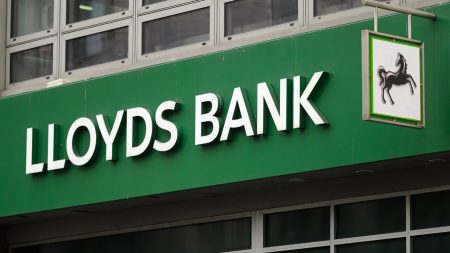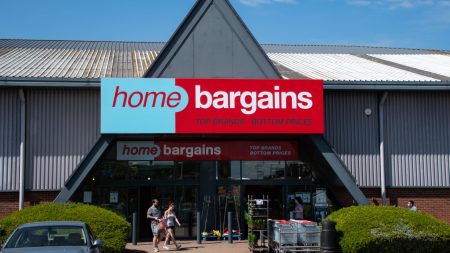Poundland, a prominent UK bargain retailer owned by the Polish company Pepco, is grappling with a sales slump and exploring drastic measures to stabilize its financial performance. The company is reportedly considering various options, including a formal restructuring process, potential store closures, and even a sale of the business. Consultants from AlixPartners have been brought in to advise on these possibilities. Another option being explored is a Company Voluntary Agreement (CVA), a process that allows businesses to renegotiate debts and leases with creditors, often leading to store closures or rent reductions. The primary objective is to improve Poundland’s cash flow and revitalize its customer appeal. A formal announcement outlining the chosen course of action is expected from Pepco’s CEO in early March.
The retailer’s struggles are reflected in its recent trading update, which revealed a 9.3% decline in revenue for the quarter ending December 31st. This downturn is attributed to underperforming clothing and general merchandise sales following a shift to Pepco-sourced products. The company acknowledges the need to get Poundland “back on track” and is conducting a comprehensive assessment of the business. Immediate actions are being taken to enhance cash performance and strengthen the customer proposition. As part of this strategy, Poundland has halted its store expansion plans for the current financial year, focusing instead on improving sales performance in existing locations. The chain opened only two new stores during the last quarter and closed thirteen, a trend already observed by shoppers in various locations across the UK.
The closures highlight the challenging retail landscape in the UK, characterized by rising costs and constrained consumer spending, creating intense competition even among discount retailers. To attract budget-conscious shoppers, Poundland recently increased its range of items priced at £1 or less. The company is also contending with rising theft, prompting the implementation of bodycams for hundreds of employees. This complex environment, exacerbated by recent government policies, is creating significant pressure on the retail sector as a whole.
The retail sector is facing substantial headwinds, with industry bodies forecasting significant challenges in the coming year. The British Retail Consortium predicts a £2.3 billion cost increase due to higher National Insurance contributions for employers. Research suggests that over half of companies plan to raise prices in response to escalating operational costs, particularly the rising cost of employment. The Centre for Retail Research anticipates the closure of around 17,350 retail sites in 2025, following the closure of 13,000 shops in 2024, a stark indicator of the difficulties facing the sector. Further job losses are also predicted, potentially exceeding those seen during the height of the pandemic.
Pepco itself acknowledged facing a “higher cost outlook in the UK” following the recent budget, which has further contributed to its financial challenges. The company reported a significant drop in profits, attributing it to slow sales, the difficult economic climate, and a non-cash impairment related to the 2016 acquisition of Poundland. The government’s decision to raise employer National Insurance contributions and lower the threshold for payments, while simultaneously increasing the minimum wage, has drawn criticism from various retailers. These businesses argue that such measures could necessitate price increases, further impacting consumer spending and exacerbating the industry’s struggles.
Poundland’s situation is not unique. Other bargain chains are facing similar difficulties, underscoring the precarious state of the UK retail market. The Original Factory Shop (TOFS), another popular discount retailer, is struggling to find a buyer, raising concerns about its future and the potential for store closures or restructuring. Shoe Zone also announced plans to close several stores due to challenging trading conditions and the impact of recent government policies. These developments paint a concerning picture for the UK retail landscape, with businesses forced to adapt to rising costs, changing consumer behavior, and the impact of government policy in a highly competitive market.











